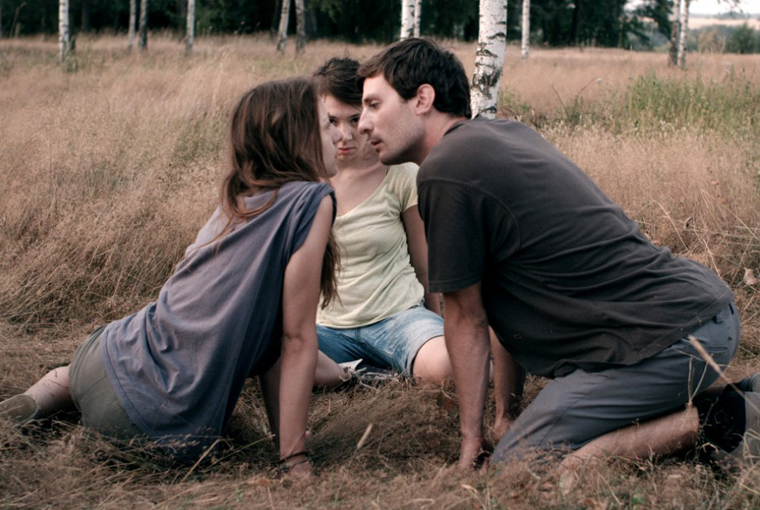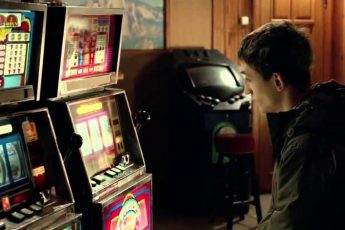Story of Non-starters
Aleksandra Gowin and Ireneusz Grzyb’s Little Crushes (Małe stłuczki, 2014)
Vol. 47 (November 2014) by Julia Zelman
Piotr, a handsome worker in a packaging factory, asks his new friend Kasia what her dreams are. She smilingly tells him a fantasy of being driven full-speed into a rocky cliff face in a beautiful American car. But such dramatic gestures are totally alien to the static world of Little Crushes and even the desire for a violent death is less a sign for alarm than a permanent character trait.
Piotr and Kasia are brought together by Asia, a young woman who cannot stand to be touched. Asia and Kasia live and work together. With their beloved pumpkin-colored Opel, they clean out old houses and apartments. Their skinny bodies are entirely incongruous with the heavy lifting their work requires, but they have a taste, almost a fetish, for cleaning out old junk. Asia meets the handsome Piotr in a packaging factory and becomes intrigued with him, assuming that as he works with boxes he must particularly love them. Piotr, more conventionally, develops a never-quite-stated infatuation with her. When Piotr’s company mysteriously vanishes, he joins Asia and Kasia’s business. They clean out old people’s things, accept a job transporting a sinister container they are forbidden to open (and don’t), eat pizza, and fall asleep chastely in a big bed. Kasia and Piotr wordlessly recognize their fruitless crush on Asia mirrored in the other person.
If this summary sounds like a series of non-starters recalling Jules et Jim – which it is – the dialogue has a certain absurd naivete that’s often very funny. In one that takes place in the Opel, Kasia angstily poses the questions of self and will: “The brain is this strange creature. And it seems that we do what we want to do, but we really do what it wants us to do. Just like this car might think that it’s going where it wants to, but it’s we who decide where it ends up.” A few minutes later the Opel asserts its free will by stalling out in the middle of traffic.
If anything provides a structure to this mostly deadpan film, it is the character of Kasia, the frail young lesbian whose emotional turbulence is mostly sketched out rather than given flesh. It’s almost a pity that, chasing inconsequentiality, the filmmakers focused so much on the non-romance of Asia and Piotr. As it is, it’s never very clear how Kasia’s death-wish is connected to her love of Asia, if at all, and where her search for self might take her.
At other times, Little Crushes comes dangerously close to a twee bourgeois-bohemian aesthetic, as for example when the trio happens upon an indie concert in the woods. This seems meant to be a wistful, magical moment for Piotr, whose eyes are fixed on Asia. But it’s much less original than the previous bleak scenes, in which they stop before a nightclub where a lone blond flails silently and maniacally, then find another club deserted except for some stray chickens. Images of failure and futility, but leavened by the trio’s matter-of-fact camaraderie.




Leave a Comment